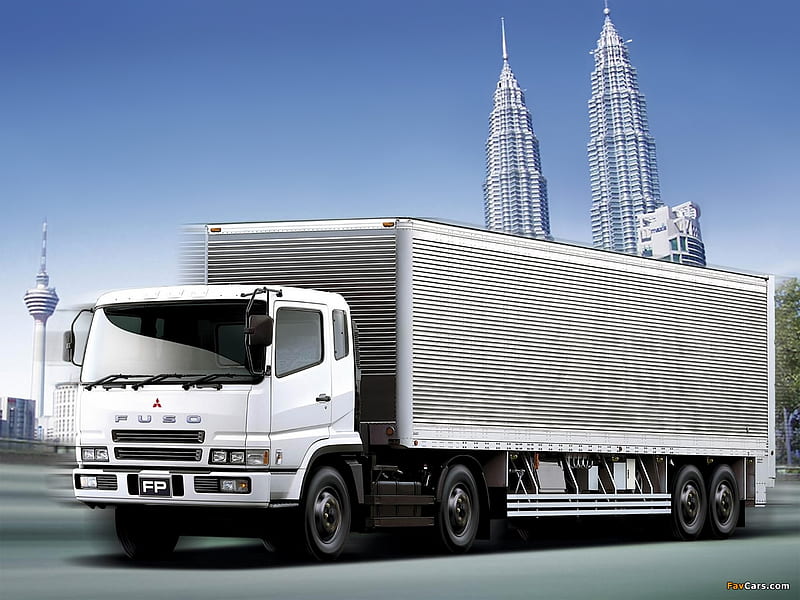
Introduction
Rigid trucks, also known as straight trucks or box trucks, are a common sight on roads and highways worldwide. These versatile vehicles play a crucial role in the transportation industry, serving a wide range of purposes across various sectors. In this article, we explore the features and applications of rigid trucks, highlighting their significance as reliable workhorses in the logistics and delivery landscape.
Understanding Rigid Trucks
Rigid trucks are characterized by their all-in-one design, featuring a single unit consisting of a cab and cargo area. Unlike articulated trucks (tractor-trailers), rigid trucks do not have a separate trailer attached. They come in various sizes, ranging from small vans to large box trucks, with different weight capacities and cargo configurations.
Features and Advantages
- Cab and Cargo Integration: The integrated design of rigid trucks allows for efficient loading and unloading of cargo. The cargo area is typically enclosed with a box-like structure, providing protection from the elements and enhancing security. The cab and cargo area are seamlessly connected, enabling easy access and reducing the need for additional equipment or handling.
- Maneuverability: Rigid trucks are known for their superior maneuverability compared to larger articulated trucks. Their compact design enables them to navigate narrow streets, urban areas, and tight spaces with greater ease. This makes them well-suited for urban deliveries, last-mile logistics, and operations in congested city centers.
- Versatility and Customization: Rigid trucks offer versatility in terms of cargo configurations and customization options. The cargo area can be modified to accommodate different types of goods, such as perishable items, furniture, electronics, or general merchandise. Rigid trucks can also be equipped with specialized features like liftgates, refrigeration units, or compartments for specific industry requirements.
- Accessibility and Efficiency: Rigid trucks provide direct access to the cargo, eliminating the need for additional handling equipment or separate loading and unloading procedures. This accessibility translates into time savings and improved operational efficiency. Rigid trucks are particularly efficient for multi-stop deliveries, where multiple destinations or customer locations need to be serviced in a single trip.
Applications in the Transportation Industry
- Local and Regional Distribution: Rigid trucks are extensively used for local and regional distribution of goods. They play a vital role in transporting products from distribution centers or warehouses to retail stores, businesses, and customers within a specific geographic area. Their maneuverability and cargo capacity make them ideal for navigating urban environments and making frequent stops.
- E-commerce and Last-Mile Delivery: With the rapid growth of e-commerce, rigid trucks have become crucial for last-mile delivery, ensuring that packages reach customers’ doorsteps efficiently. Their compact size allows them to access residential areas and negotiate narrow streets, enabling faster and more convenient deliveries for online retailers and courier services.
- Service and Maintenance: Rigid trucks are commonly used as service vehicles for industries such as plumbing, electrical work, construction, and maintenance services. These trucks are equipped with specialized tools and equipment, allowing technicians to transport their tools and materials directly to job sites. The integrated design of rigid trucks provides a mobile workspace for service personnel, enhancing efficiency and reducing downtime.
- Mobile Retail and Food Services: Rigid trucks have also found applications in the mobile retail and food services sectors. Food trucks and mobile retail units are often based on rigid truck platforms, allowing entrepreneurs to create mobile businesses that can move from one location to another. These trucks offer flexibility and mobility, enabling businesses to reach customers at events, festivals, or areas with high foot traffic.
Conclusion
Rigid trucks are versatile and indispensable assets in the transportation industry. With their integrated design, maneuverability, and cargo capacity, they serve a wide range of applications across different sectors. From local distribution and last-mile delivery to service and maintenance operations, rigid trucks provide a reliable and efficient solution for transporting goods and facilitating business operations. As the logistics landscape continues to evolve, rigid trucks will continue to be the workhorses that keep goods moving, contributing to the success of businesses and economies alike.
